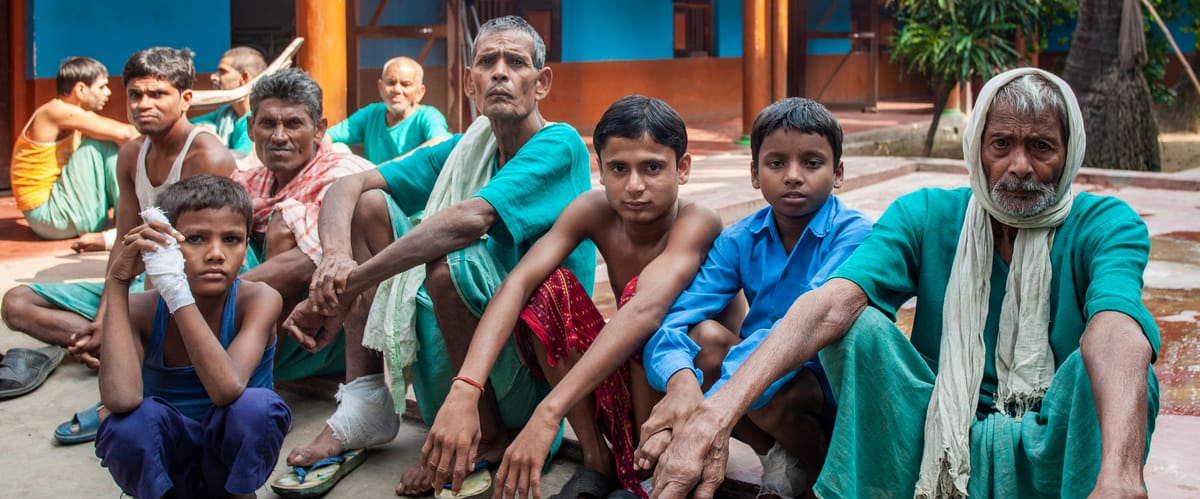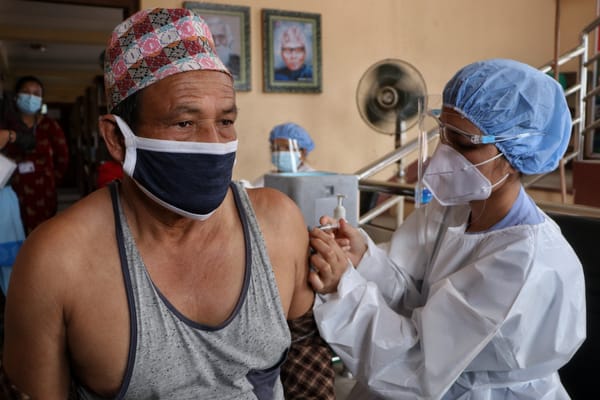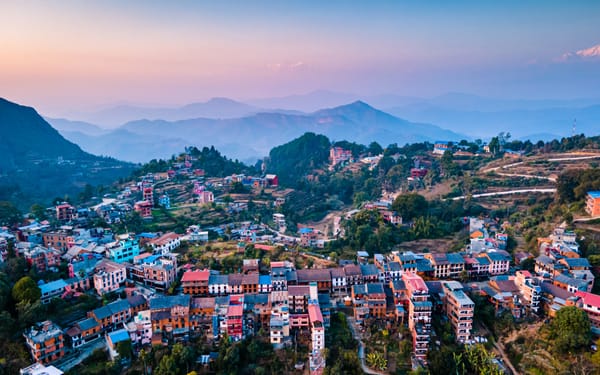Bridging the Gap: Delivering Healthcare to Nepal’s Forgotten Villages

High in the hills of Nepal, where winding trails replace roads and communities live far beyond the reach of modern infrastructure, healthcare remains a luxury — or worse, a myth. In villages perched above the clouds, a woman in labor may have to be carried for hours on foot to reach a clinic. A farmer with a fractured leg might wait days before receiving help. Children die from untreated infections. Elderly villagers endure chronic pain in silence. While Nepal has made great strides in development over the years, the rural healthcare divide remains one of its most stubborn and tragic inequalities.
This is the gap that Malla Medical seeks to bridge.
The Unseen Crisis
Despite the increasing presence of urban hospitals and private clinics in cities like Kathmandu and Pokhara, nearly 80% of Nepal’s population lives in rural or semi-rural areas. In these regions, especially in mountainous districts like Rolpa, Dolpa, and Bajura, access to even the most basic medical services can be non-existent. Many health posts are understaffed or without trained medical professionals. Supplies are outdated or unavailable. Electricity is unreliable. Transportation is treacherous.
But the most painful barrier isn’t infrastructure — it’s neglect. These are Nepal’s forgotten villages, where time moves slower, and so does progress. Generations are born and buried without access to trained physicians or modern diagnostics. The data rarely reaches policymakers, and the voices of these communities are often lost in the noise of national agendas.
A Mission Born From Loss
The story of Malla Medical is rooted not in policy, but in personal pain. Our founder, Alexander de Royal, experienced the heartbreak of losing a loved one due to delayed care in a remote part of Nepal. The tragedy wasn’t a result of bad luck — it was the predictable consequence of a broken system. Rather than turn away, Alexander chose to confront that reality head-on.
In 2023, he founded Malla Medical, not as a hospital or clinic, but as a mission-driven research and intervention organization. The goal was simple: understand the barriers, listen to the communities, and design scalable, culturally appropriate solutions to bridge the healthcare gap.
Listening Before Leading
Malla Medical began by doing what many organizations overlook — listening. We conducted community health assessments, interviews with local health workers, and logistical surveys of the most underserved regions. We walked the trails. We sat with village elders. We listened to mothers who had lost babies, to youth forced to migrate for treatment, and to overwhelmed health aides struggling alone.
What we heard wasn’t hopelessness. It was resilience, ingenuity, and a plea for partnership.
From Data to Action
Data collection is only the beginning. At Malla Medical, every chart and field report becomes a blueprint for action. Based on our findings, we’ve begun designing several key initiatives:
- Mobile Health Units
These rugged, portable clinics bring diagnostic tools, medications, and skilled professionals directly to remote villages on a rotating schedule. Staffed by local paramedics and trained volunteers, they are the first line of response in areas with no permanent facilities. - Health Worker Training Modules
With support from international medical volunteers and Nepali medical institutions, we are building simplified, Nepali-language training materials for community health aides. These modules emphasize maternal care, wound management, infection control, and early diagnostics. - Telemedicine Pilots
Where internet access allows, Malla Medical is piloting telehealth booths — solar-powered hubs that connect rural patients with city-based doctors. These consultations have already helped identify treatable illnesses that would otherwise go undiagnosed. - Culturally Tailored Public Health Education
We’re developing comics, audio messages, and in-person workshops in local dialects to educate communities on basic hygiene, chronic disease prevention, and when to seek care. Education builds trust, and trust saves lives.
Human Faces, Real Impact
Our mission isn’t abstract. It’s about people.
Like Tsering, a 68-year-old woman in Solukhumbu who had lived with untreated high blood pressure for over a decade. She now receives monthly checkups through a mobile health unit and feels “reborn.”
Or Nirmala, a young mother whose newborn survived a respiratory infection because a local health aide we trained recognized the signs early and intervened with antibiotics.
These are not isolated success stories. They’re the seeds of transformation.
A Local-Global Partnership
While Malla Medical is based in California, its heart beats in Nepal. We believe that real change can only happen through local leadership, not outside control. Our model focuses on capacity building, not dependency. We aim to equip, not replace existing community health efforts.
That’s why we partner with:
- Local governments and municipalities
- Community-based organizations and NGOs
- Health workers, midwives, and traditional healers
- Diaspora professionals and Nepali physicians abroad
By merging global resources with local wisdom, we build bridges — not pipelines.
The Road Ahead
Our journey is just beginning. In the next two years, we plan to:
- Launch Nepal’s first open-source rural health gap map
- Establish 3 permanent mobile unit bases in the most underserved provinces
- Expand our training network to reach over 500 health aides
- Partner with academic institutions to study long-term impact on health outcomes
But more than metrics, our goal is a cultural shift — where the health of remote villagers is valued just as much as those in the capital. Where birthplace doesn’t determine life expectancy.
How You Can Help
We’re not looking for saviors — we’re looking for partners. Whether you’re a healthcare professional, researcher, donor, student, or global citizen who believes in equity, there’s a place for you in this movement.
You can:
- Volunteer your expertise
- Sponsor mobile health trips
- Help us translate educational materials
- Support our next round of community health assessments
Every voice counts. Every step matters. Every life deserves dignity.
Conclusion: Healing From the Ground Up
Bridging Nepal’s rural healthcare gap is not just a medical challenge — it is a moral one. It requires vision, humility, and the courage to walk with those who’ve been left behind. At Malla Medical, we don’t believe in top-down solutions. We believe in meeting people where they are, listening first, and building from the ground up.
Because no village should be forgotten.
Because no life should be lost to distance.
Because health is a human right — not a privilege of geography.



